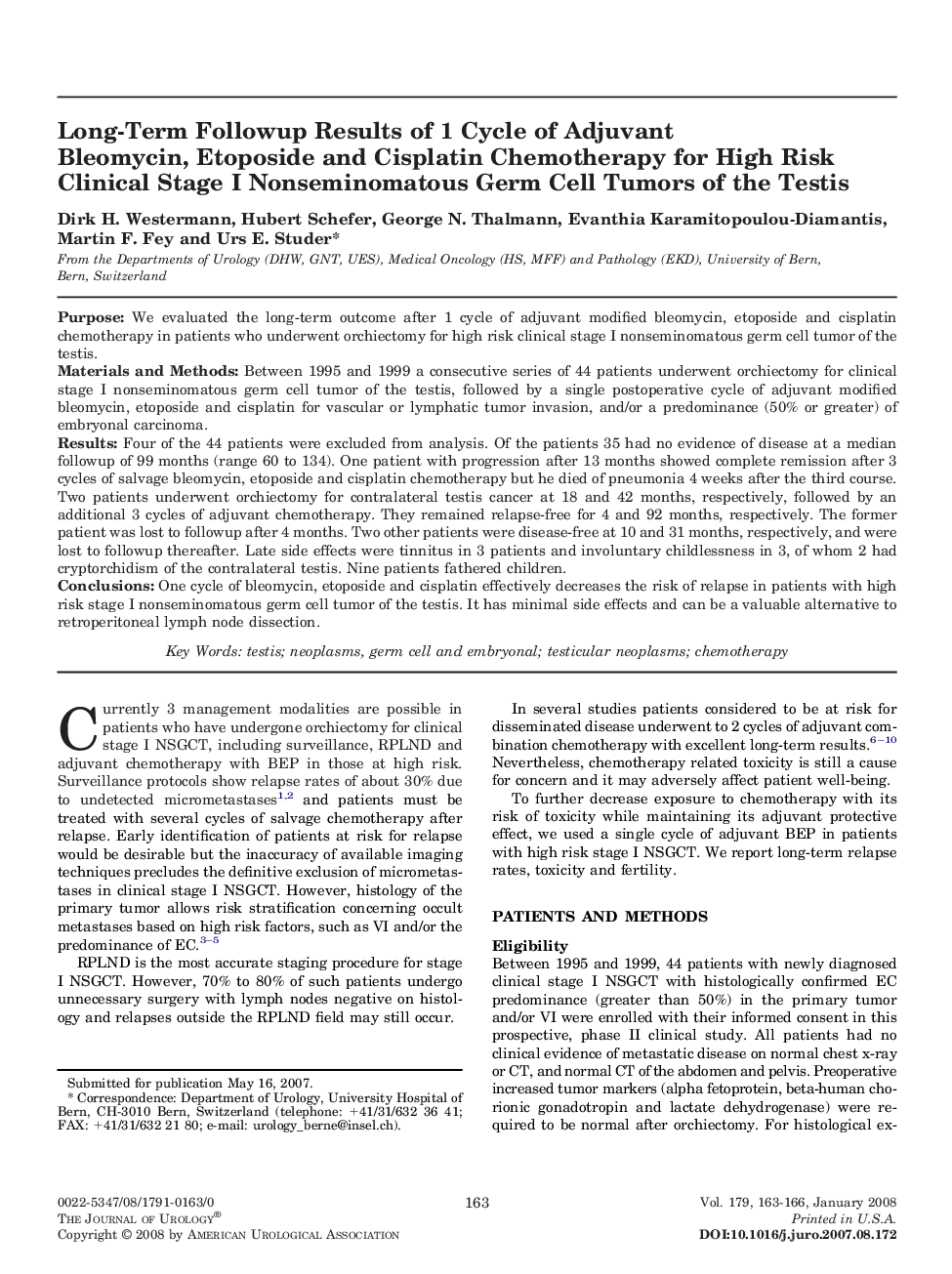| Article ID | Journal | Published Year | Pages | File Type |
|---|---|---|---|---|
| 3874951 | The Journal of Urology | 2008 | 4 Pages |
PurposeWe evaluated the long-term outcome after 1 cycle of adjuvant modified bleomycin, etoposide and cisplatin chemotherapy in patients who underwent orchiectomy for high risk clinical stage I nonseminomatous germ cell tumor of the testis.Materials and MethodsBetween 1995 and 1999 a consecutive series of 44 patients underwent orchiectomy for clinical stage I nonseminomatous germ cell tumor of the testis, followed by a single postoperative cycle of adjuvant modified bleomycin, etoposide and cisplatin for vascular or lymphatic tumor invasion, and/or a predominance (50% or greater) of embryonal carcinoma.ResultsFour of the 44 patients were excluded from analysis. Of the patients 35 had no evidence of disease at a median followup of 99 months (range 60 to 134). One patient with progression after 13 months showed complete remission after 3 cycles of salvage bleomycin, etoposide and cisplatin chemotherapy but he died of pneumonia 4 weeks after the third course. Two patients underwent orchiectomy for contralateral testis cancer at 18 and 42 months, respectively, followed by an additional 3 cycles of adjuvant chemotherapy. They remained relapse-free for 4 and 92 months, respectively. The former patient was lost to followup after 4 months. Two other patients were disease-free at 10 and 31 months, respectively, and were lost to followup thereafter. Late side effects were tinnitus in 3 patients and involuntary childlessness in 3, of whom 2 had cryptorchidism of the contralateral testis. Nine patients fathered children.ConclusionsOne cycle of bleomycin, etoposide and cisplatin effectively decreases the risk of relapse in patients with high risk stage I nonseminomatous germ cell tumor of the testis. It has minimal side effects and can be a valuable alternative to retroperitoneal lymph node dissection.
